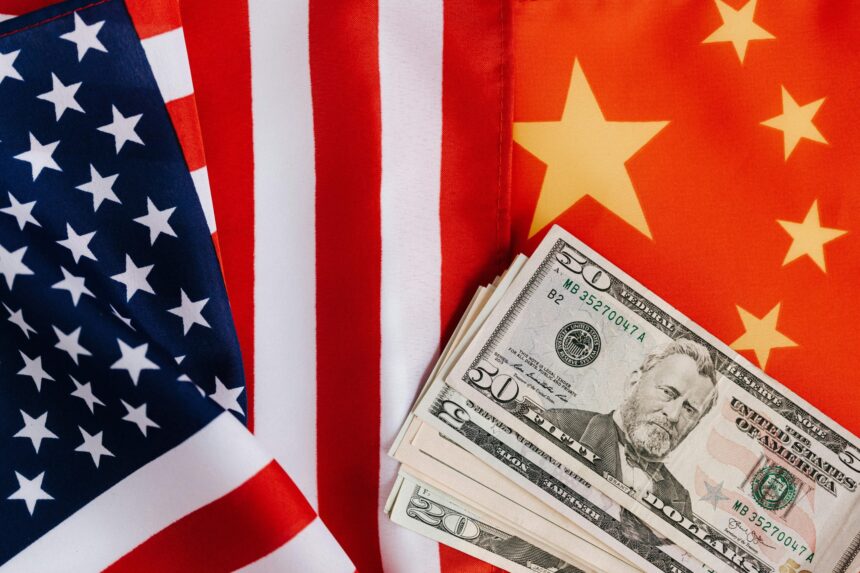Numerous non-governmental organizations overseeing dissent, as well as human and labor rights in China, have let go of employees after being compelled to halt operations due to a freeze on foreign aid by US President Donald Trump, according to the monitors.
The groups play a crucial role in recording a prolonged campaign by President Xi Jinping against minorities, rights advocates, and legal professionals. Last year, the EU voiced worry regarding the “extremely serious” human rights conditions in China, especially in the areas of Xinjiang, Tibet, and Hong Kong.
“Many of these NGOs were caught off guard – they believed that due to US-China rivalry, even with funding reductions, the China initiatives would remain,” stated Maya Wang, associate China director at Human Rights Watch.
“The withholding of US funding for these initiatives will significantly harm global civil society.” Among the impacted organizations is the US-based Freedom House, which reported that its initiative, China Dissent Monitor, managed by researchers in Taipei who maintain a public database of protests in China, had to halt all research because of the funding freeze.
Freedom House obtained $80 million in grants from the US government in 2024, which accounted for 88% of its annual revenue, according to its financial report.
Its dissent database, which monitors over 7,000 protests since 2022, has become a vital resource for journalists and researchers of China as the government has sought to suppress protests due to the slowing economy and sharply increasing youth unemployment.
“The pertinent restructuring of US institutions is their internal matter,” the Chinese foreign ministry stated to Reuters in a declaration.
Wang from HRW assesses that the freeze has affected many comparable China-focused organizations since NGOs and grassroots entities rely on initiatives financed by the same grant.
Several Chinese regulations essentially prevent local NGOs from obtaining foreign funding and severely restrict the activities of foreign NGOs within China.
Official statistics reveal that the United States committed $10.7 million in foreign assistance for issues related to China in 2024, primarily via USAID.
Close to half of that amount, equating to $5.2 million, was allocated to initiatives concerning democracy, human rights, and governance.
Wang stated that numerous human rights and democracy organizations in China have increasingly relied on US funding over time, as private foundations and corporate contributors steered clear of these issues, whereas other governments tended to support only humanitarian initiatives.
There isn’t a public disclosure of the amount of USAID funding allocated to particular organizations or initiatives. Numerous human rights NGOs in China opt not to reveal their specific funding sources to evade Beijing’s claims of excessive influence from foreign governments.
Trump has frozen the majority of US government-funded assistance worldwide for 90 days, while taking steps to dismantle USAID, which he has labeled as managed “by a group of radical lunatics.”
The action is a component of his administration’s initiative to reduce the federal government workforce and limit what it deems unnecessary spending.
Although Trump has indicated that certain funds might be made available once the pause ends, it remains uncertain what could be reinstated, prompting many China-focused organizations to urgently seek savings, additional funding, and ways to reduce dependence on the United States.
Beijing has traditionally accused Washington of trying to provoke “colour revolutions” in China by backing civil society NGOs with USAID and the National Endowment for Democracy funded by the US Congress.
This week, state media CCTV aired a segment called, “USAID: Assistance as a guise for intervention.” Seven employees of China Labor Watch, a New York-based organization established by veteran labor activist Li Qiang to oversee mistreatment in Chinese factories, have been placed on furlough. Li mentioned that some individuals with temporary work visas are at risk of being deported to China.
Around 90% of the group’s funding originated from the US government, starting in 2021. Li predicts this year’s operating expenses to be $1 million, an increase from last year’s $800,000.
“It feels as if our projects are deemed unimportant and that our efforts lack significance,” stated Li, who is currently seeking funding from different sources.
“I relied too heavily on the US government and overlooked the search for new funding sources.” This represented a tactical error. “We might have diversified significantly sooner.”






